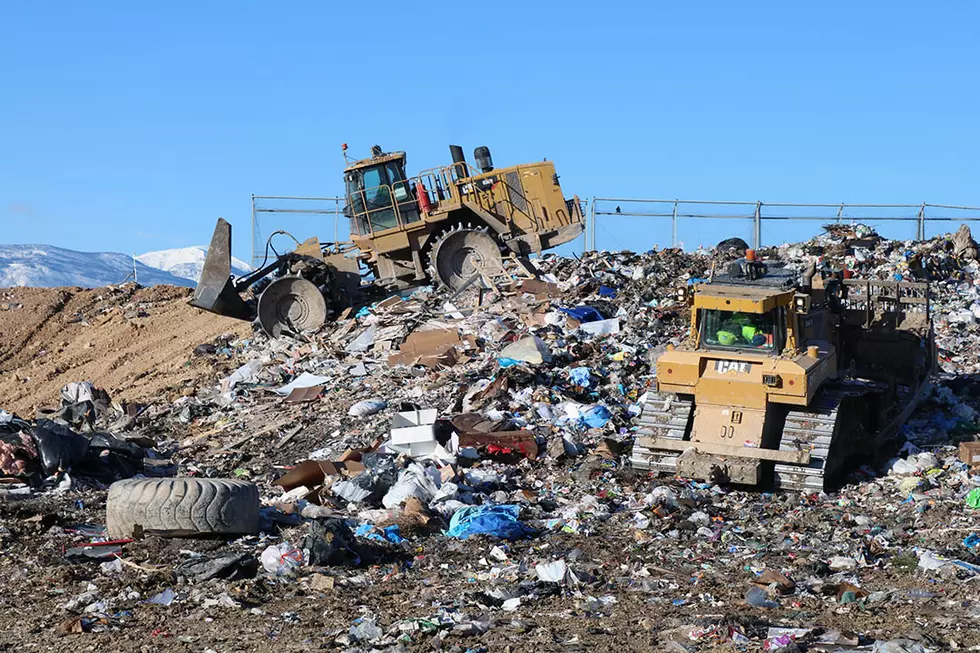
Sustainable Missoula: Compostable takeout containers and the circular economy
Mason Parker and Michelle Barton
If you’ve eaten at a restaurant in Missoula, chances are, you have seen compostable takeout containers. There is a growing trend in businesses that provide cups, bowls, plates, spoons, forks, and knives made out of plant-based materials - typically stamped with the logo “BPI Compostable.”
This logo confirms the materials’ ability to break down fully and become usable compost. The BPI website states:
“The BPI Certification Mark indicates third-party verification of compostability for manufacturers and brand owners to use on products and packaging and for consumers, end-users, and composters to use when determining whether or not a product or package is compostable. BPI is the only third-party verification of ASTM standards for compostable products in North America.”
Compostable, plant-based takeout containers are now replacing single-use plastics. We can recycle these containers through the beautiful process of composting. Ideally, the end product is not only usable compost, but less single-use plastics purchased in our community, and less material sent to our landfill. A win, win!
Plus, with our local industrial compost facility, Garden City Compost, there's no question where those materials end up. With growing concerns about the viability of recycling and where materials go once we recycle them, we can rest assured that compostable materials are deposited and processed right here in town!
There are, however, two major requirements that must be met in order for our compostable takeout containers to turn into compost.
1).The compostable containers must be composted. Oftentimes businesses will take the huge (and usually pricier) step of purchasing compostable takeout containers without the composting services to properly dispose of them.
While opting to purchase BPI-certified compostable containers instead of single-use plastics is a more sustainable choice, it is only the first step of the process. They must be disposed of at an industrial composting facility where they can break down and become soil. If compostable products are sent to the landfill, it actually leads to increased methane release due to the use of biomaterial in their manufacturing.
2). The containers must be “compostable” (plant-based) and not just labeled as “biodegradable”. The difference between biodegradable and compostable containers is laid out in this Sustainable Missoula Article by Caitlin Lewis, the founder of Soil Cycle, Simple Mysteries of Composting Answered where she states, “Biodegradable refers to materials that can be broken down without oxygen in a ‘reasonable’ time, often requiring special enzymes or microorganisms.
Simply stating, most ‘biodegradable plastics’ are still plastic! On the other hand, compostable packing is most often manufactured using plant-based materials, allowing them to break down in a traditional or industrial composting facility.
While not all compostable materials are certified, you can look for the BPI Compostable label on the packaging. While it is easy to compost paper containers at home, compostable ‘plastics’ require temperatures between 120 and 140 degrees, which causes materials to warp and quicken the process which can take 90-200 days.”
Home ReSource’s Pledge Zero Program can guide business owners in sustainable purchasing, setting up proper disposal infrastructure, and answering common questions. Through a thorough but painless process that includes a zero waste audit, recommendation report, and one-on-one consultation, Pledge Zero will get businesses on the right track to zero waste while celebrating those that are already there. Plus, it’s totally free! If you’re interested in getting your business involved in the Pledge Zero program, please reach out to Mason Parker, the Zero Waste Systems Manager at Home ReSource (mason@homeresource.org).
Businesses that take part in providing more sustainable resources for consumers contribute to a circular economy. Our current materials economy is linear, and oftentimes referred to as a Take-Make-Waste economy - meaning we take raw materials from the Earth, make those raw materials into all of our stuff, and waste by throwing our stuff into the landfill when we're done with it.
When we switch from disposable, single-use plastics to compostable, reusable, and recyclable materials - we generate less waste, we extract less raw materials from the planet, and we make our linear economy more circular.
Ready to learn more about a circular economy and how to bring it to Missoula? Home ReSource, in partnership with Patagonia and Logjam, is hosting a free screening of “Going Circular” Tuesday, November 29 at the Wilma.
“Going Circular” is a documentary that unlocks the secrets to circularity, an innovative concept that could save our collective future on Earth. Following the screening, there will be a short panel discussion with local leading experts on sustainability and building a circular economy. Save your seat here or learn more here.
Mason Parker is the Zero Waste Systems Manager at Home ReSource mason@homeresource.org; Michelle Barton is the Zero Waste Education Manager at Home ReSource michelle@homeresource.org
Sustainability Happenings
Here we offer ideas about sustainable ways to stay involved in our community. If you like these offerings, consider signing up for Climate Smart’s eNewsletter here. And sign up for the Home ReSource eNews via their homepage here.
Nov 14 (Mon) — Rally for Forests & Wildlife. 12:30 pm at US Forest Service Northern Region Headquarters, 26 Ft Missoula Rd, Missoula. More info here. AND here.
Nov 14 — Reviewing Northwestern Energy’s Integrated Resource Plan. A discussion hosted by MT Environmental Information Center. 6pm in Missoula Public Library, Cooper Room B. Info here.
Nov 16 — Webinar on Montana Climate Change projections and adaptation strategies from the Montana Climate Office and tribal scientists. 7-8:30 pm. Info/register here
